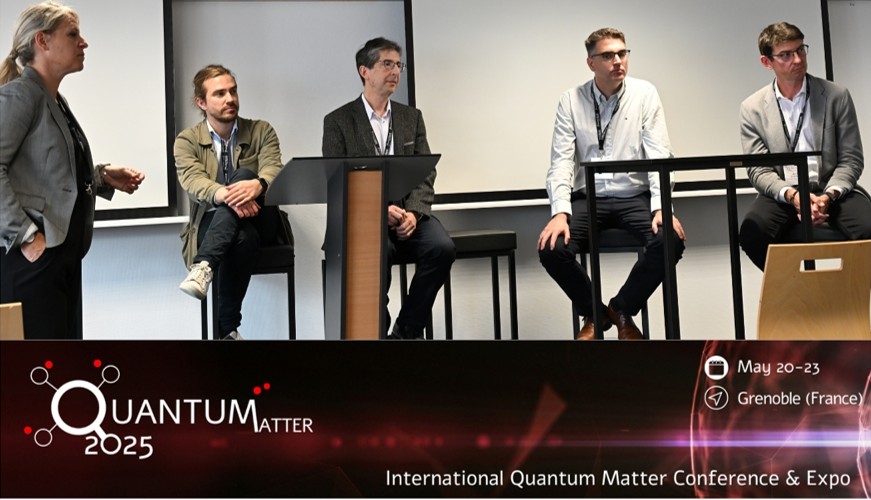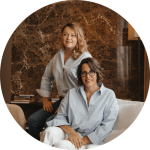
Grenoble hosts international Quantum Matter 2025 conference
As the International Year of Quantum Science and Technology continued to unfold, the European deeptech hub of Grenoble, France hosted the 5th edition of the international Quantum Matter conference, which opened on May 20, 2025. A panel talk brought quantum research, technology, and business professionals together to discuss how novel partnership models—one of Grenoble’s hallmarks—can fuel the development of quantum technologies.
Grenoble’s legendary semiconductor synergies now serving quantum
For more than three decades, Grenoble has cultivated a reputation for fostering synergies between education, research, and industry in the field of microelectronics. Now, the Alpine city has leveraged that expertise to become one of France’s top three quantum hubs, together with Paris and Saclay.
The city’s transformation rests on an impressive foundation of interconnected initiatives around quantum. The QuantAlps program has given its 20 participating research laboratories a common mission, while the Multidisciplinary Institute for Artificial Intelligence (MIAI) has now expanded its scope to encompass quantum research. The Minalogic micro- and nanotechnology cluster and the nationally-significant QuanTEdu-France project—both led from Grenoble—further cement Grenoble’s position at the center of today’s quantum playing field. Stakeholders in these and other initiatives will benefit from the recently-inaugurated Maison du Quantique in Grenoble to continue to build the local quantum community.
Cooperation and community-building vital to driving advances in quantum
This year’s Quantum Matter conference tackled the field’s most pressing challenges, from quantum materials and sensors to simulation, artificial intelligence, topology, software, and communication protocols. The diverse gathering included students, researchers, startup founders, technology providers, and established manufacturers—a mix that reflects the depth and breadth of the community.
While quantum bit (qubit) development regularly captures headlines, industry experts emphasize that quantum’s success will require something less newsworthy but just as important: a robust ecosystem spanning the quantum computing and communication systems value chains.
Overcoming the challenges to a coherent quantum industry, together
The Quantum Matter panel talk addressed perhaps the greatest challenge today: How to build a coherent quantum computing industry at a time when use cases remain largely exploratory.
Startups like Silent Waves, which specializes in ultra-low noise amplifiers for quantum computing laboratories, have the potential to become technology providers—but only if they can forge strong partnerships with research organizations and large corporations around emerging applications. “Quantum is still a niche market. It is important for established stakeholders to work closely with startups to develop effective solutions,” said Silent Waves founder Luca Planat.
The entire quantum value chain represented in Grenoble
Grenoble’s quantum ecosystem spans the entire value chain and stands out for its excellent vertical integration. Startup Quobly, whose ambition is to scale a silicon quantum processing unit, has secured a major partnership with semiconductor giant STMicroelectronics to prepare its technology for volume manufacturing. Manufacturers of cutting-edge components, equipment, and supplies for future quantum systems such as Radiall, which specializes in connectivity solutions, and Air Liquide, which provides cryogenic solutions to support the transition from the laboratory to industrial applications, are also present locally.
Martin Staempflin, Director of Technologies and Markets at Air Liquide Advanced Technologies, outlined his company’s forward-looking approach: “We are already developing the cryogenic technologies and infrastructure that will be essential for future quantum server farms. We are preparing for tomorrow’s uptime, cost, and energy efficiency requirements today.” The company is even exploring novel business models, including “cold as a service,” to make sure cryogenic systems are easy for quantum end-users to understand.
The technical challenges ahead are significant. Laurent Petit, who oversees innovation in microwave and radio frequency systems at Radiall, emphasized the need for researchers and manufacturers to adapt to each other’s ways of working. “Quantum innovation requires more than cooperation: You have to remain flexible,” he said, citing the QRYOLink project, which required months of alignment between cryostat manufacturers and qubit developers. “What works at room temperature will exhibit some very different behaviors at 10 millikelvin.”
Helping the local tech ecosystem grapple with the complexities of quantum
Minalogic, a major technology cluster in the region, has assumed a crucial role in helping companies navigate quantum technology’s complex landscape. Technical Director Hervé Ribot explained the cluster’s broadened mission, which now includes helping its members understand what announcements and publications related to quantum technology mean in today’s competitive global landscape. “Working with scientists from QuantAlps and science communicator Olivier Ezratty, we are giving our members the insights they need to understand which quantum technologies are mature and ready for use versus those still emerging. This is essential for companies positioning themselves as either quantum solution providers or users.” Minalogic plans on pursuing these efforts in close cooperation with the new Maison du Quantique.
Beyond research organizations and startups, major industrial companies—including Air Liquide, Soitec, Thales, Teledyne e2v, Radiall, and Lynred—are working alongside giants like Google, Apple, HPE, and Orange to structure the fledgling industry.
A new era that will reshape industry and technology
Grenoble has everything quantum stakeholders need to succeed. Panel moderator Céline Jullien, who leads inward investment at Invest in Grenoble Alpes, said, “Quantum is not just a new field, but truly a new paradigm that will reshape industry and technology. The transformations to come are major—whether they are technological, economic, or societal.” With approximately fifteen national quantum ecosystems emerging globally, Grenoble appears well-positioned to maintain its pioneering role. As she noted, innovation “has always been part of our DNA here in Grenoble.”
Irina Fedorenco and Sara Freitas are the founders of Codrii Agency, which provides marketing strategy for deeptech companies, including in the field of quantum.

![]() Contact: celine@investingrenoblealpes.com
Contact: celine@investingrenoblealpes.com

